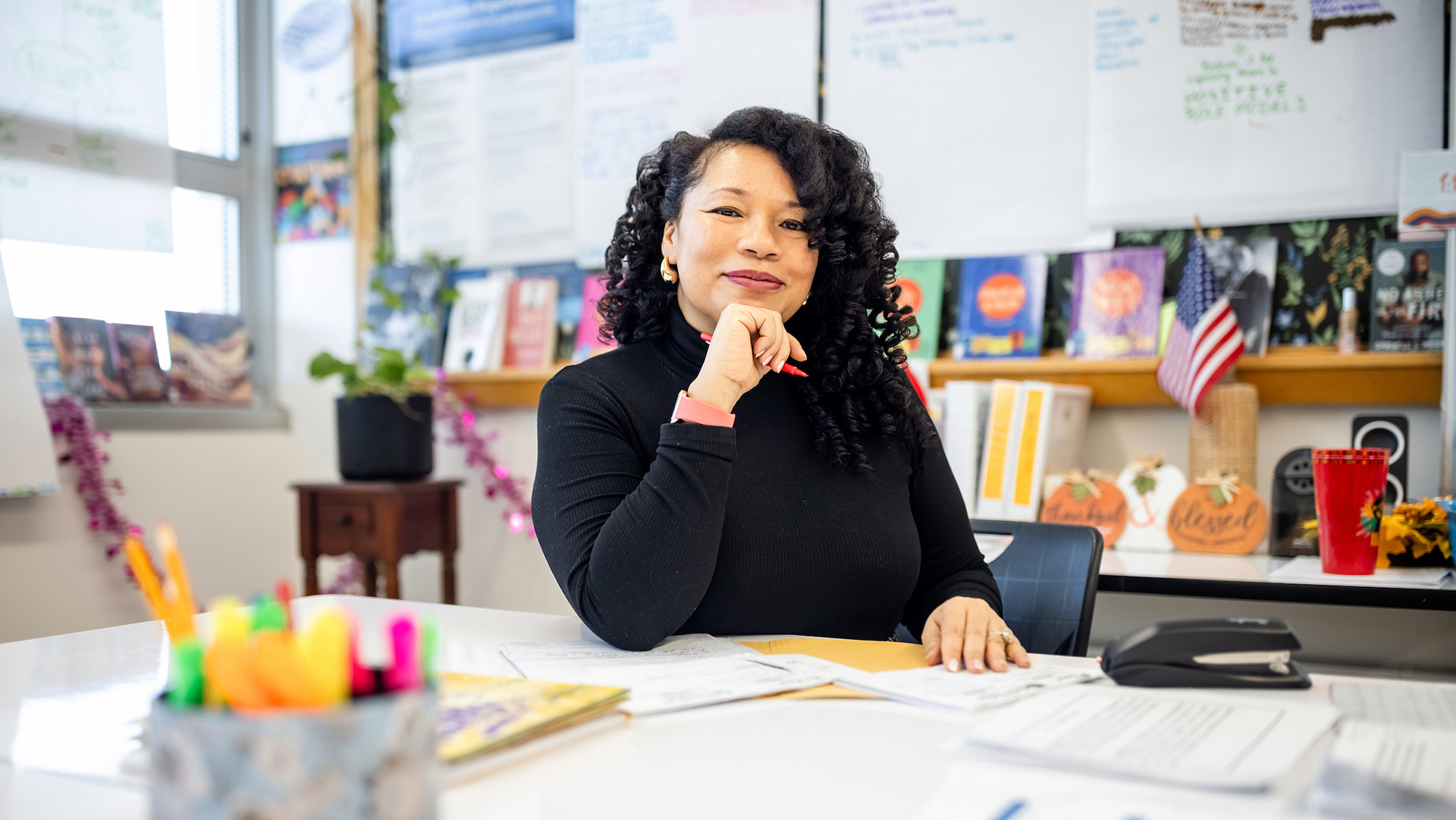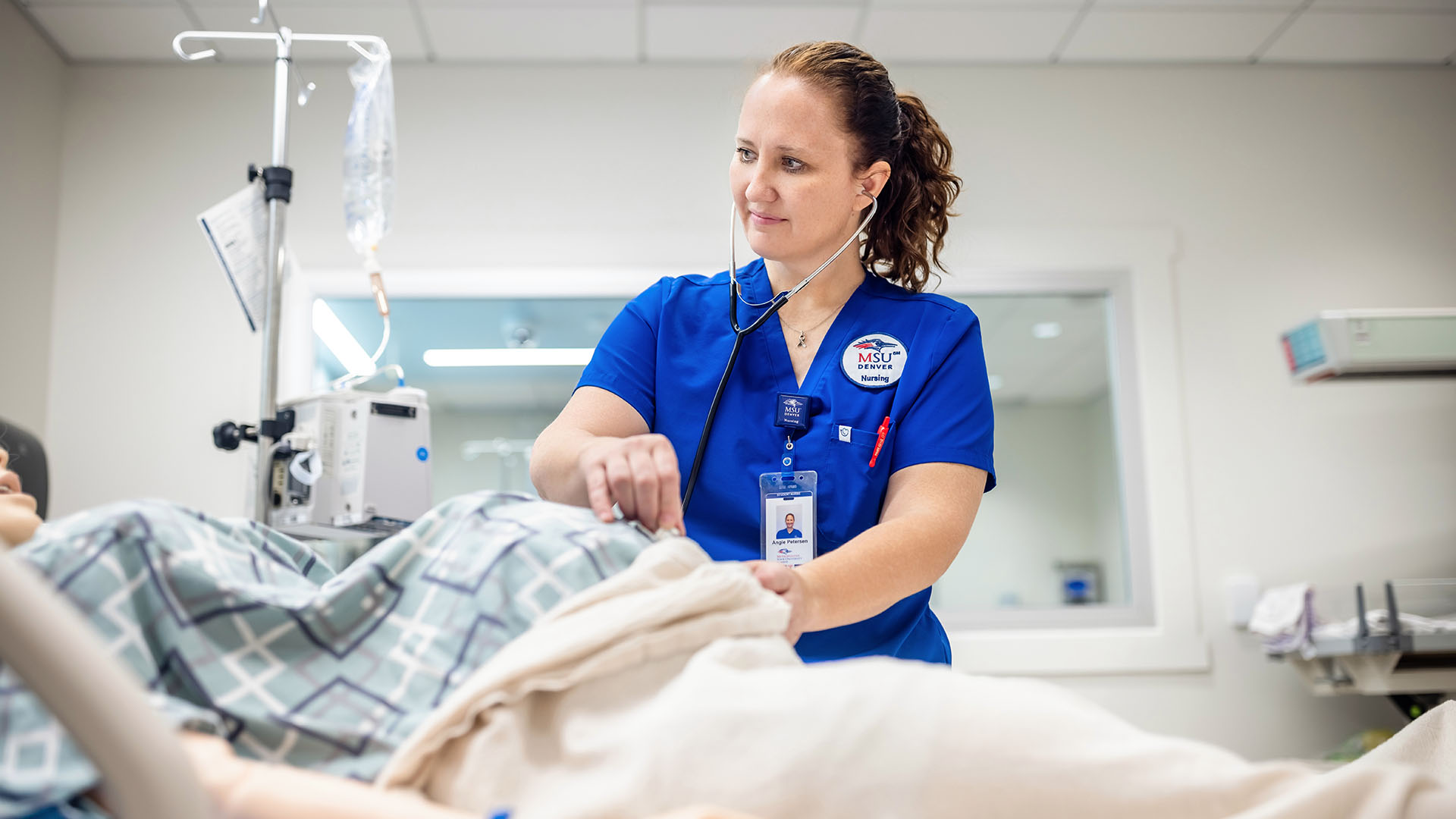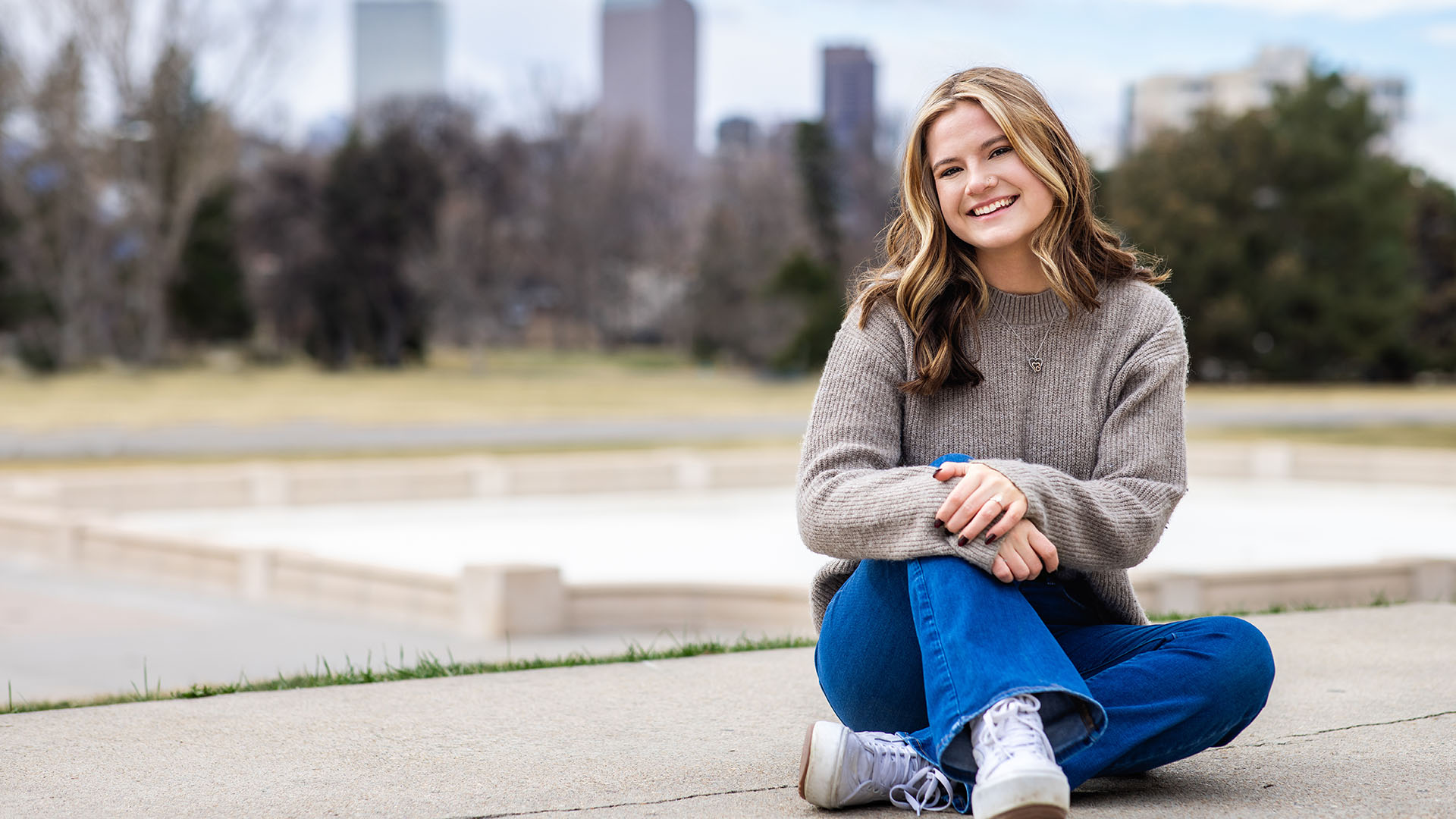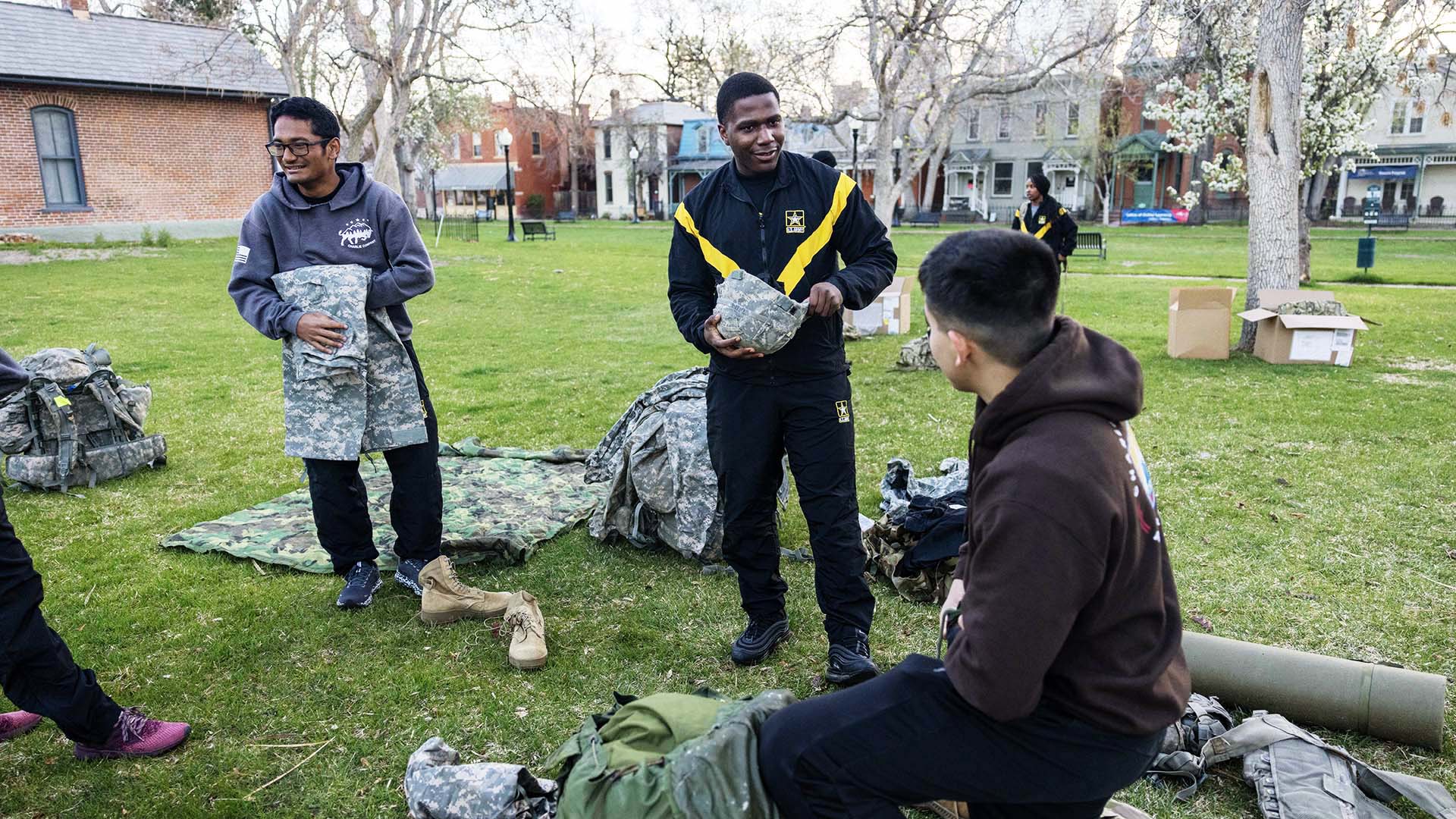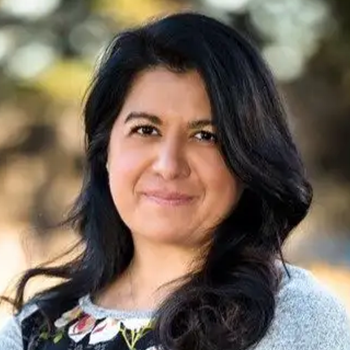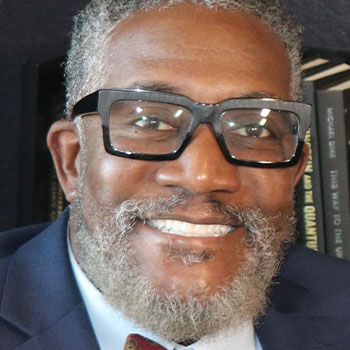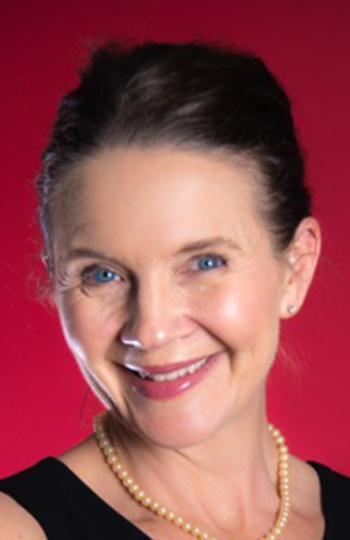A minor with a major impact
A concurrent-enrollment program from MSU Denver and Abraham Lincoln High School offers students the chance to complete enough credits for a Spanish minor before leaving high school.
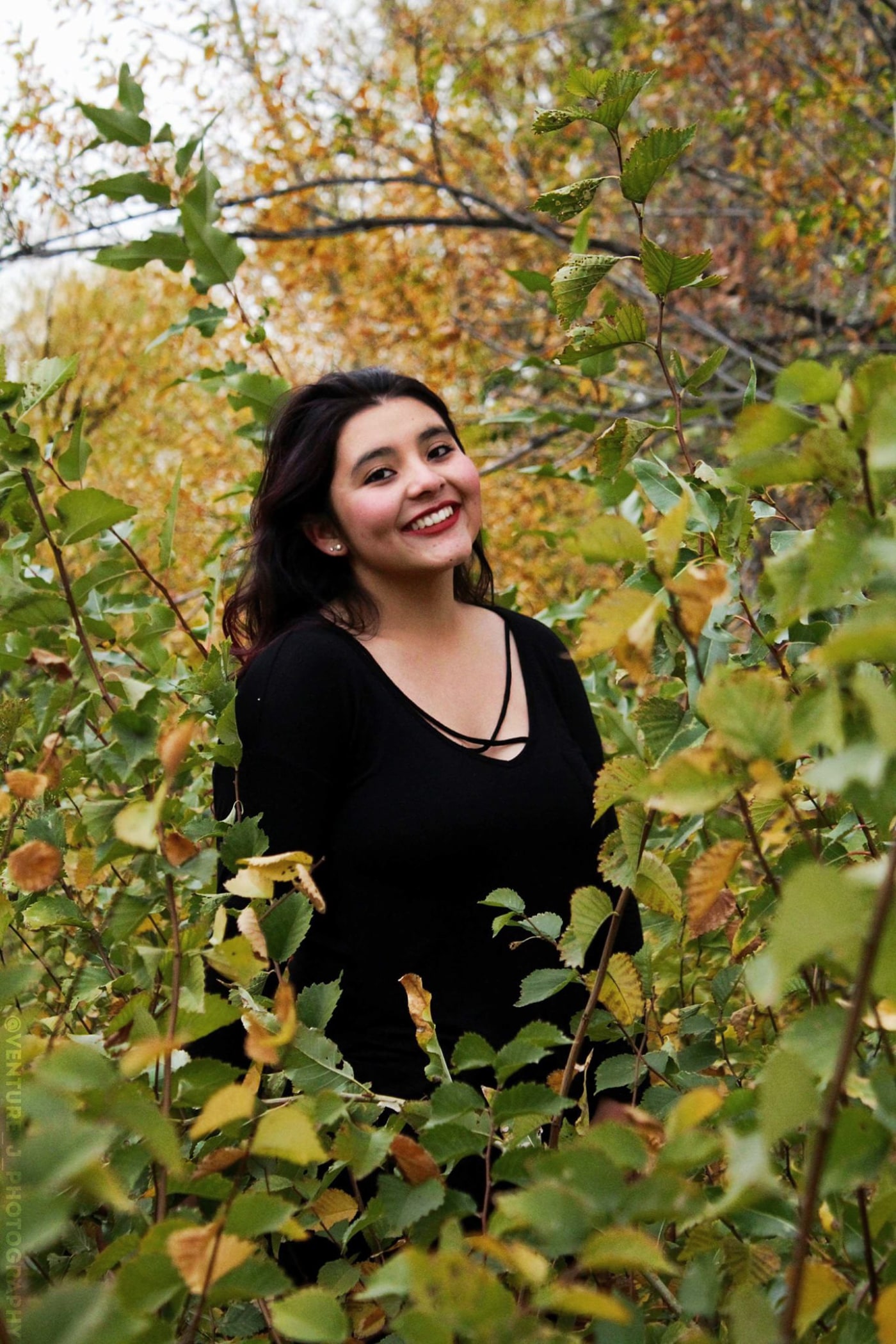
Lesly Castillo grew up speaking Spanish. It was the only language she ever knew until coming to Denver in 2015 and enrolling at Abraham Lincoln High School. Over the past three years, Lesly has built her English proficiency and realized the importance of being bilingual and the opportunities it can create for employment and personal fulfillment.
When she was approached by her high school counselor to enroll in Metropolitan State University of Denver’s Front Runners concurrent-enrollment Spanish-minor program, she jumped at the chance. The program is a partnership between MSU Denver and ALHS in which students earn college credits toward a Spanish minor from MSU Denver onsite at their high school.
Earning college credit in high school gives Castillo and others in the program a head start toward a college degree, which is the goal of the program.
“ALHS students have high-level Spanish skills, and if we can develop that skill, then we can help get them into college and develop their English skills,” said Laura Padilla-Pater, coordinator of concurrent enrollment at MSU Denver and one of the leaders in creating the program. “This gives them a better foundation to start from. Many of these students need a little assistance because they don’t fit into a certain mold.”

ALHS was chosen, Padilla-Pater said, because it is a predominantly Spanish-speaking school and doesn’t have many college-ready students. However, she and the folks at Denver Public Schools noticed a lot of ALHS students had high Advanced Placement Spanish scores. Finding a way to utilize the students’ native Spanish-language skills while building interest in college was the driving force. Key players from MSU Denver and DPS worked quickly and efficiently to create the Spanish-minor concurrent-enrollment program, and it launched last fall.
Scores from the AP Spanish test determine what college class the students start with; the higher the score, the more advanced the course. Most students will begin with SPA 2110 Spanish Reading and Communication I and work up from there. If they stay on track, they have potential to leave high school with 21 Spanish credits — enough for a minor if they graduate from MSU Denver. Because Castillo exceeded the AP scores, she was approved to come to MSU Denver to take SPA 3110 Advanced Conversation. Castillo will be a full-time Roadrunner in the fall, will seek a degree in criminal justice and will complete the minor in Spanish and the translator certificate. Her ultimate goal is to become a lawyer or a police officer.
“I love community, and I love to help people,” she said. “In criminal-justice classes, I will learn about laws, and if I become a lawyer, I can help the community when they need me. If I become a police officer, I can protect my community.”
Even though Castillo is only two classes into the Spanish minor, her admiration for the program is apparent.
“I feel like I’m growing up,” she said. “I’m becoming more responsible. I will have the opportunity to create change in the world, mostly with immigrants or things around DACA.”
She is realizing the advantages already and using what she’s learned to help her community. Twice a week, she works at her high school calling parents who speak only Spanish to translate messages from her high school’s administration about grades, attendance or behavior issues, missing assignments or anything else the high school needs. She loves being able to provide a service to her community that eases a stressful situation.
“I know the impact of not knowing English and how it can make people feel anxious or frustrated. I feel gratitude from them for my (translating) services,” she said.
The program’s success is yet to be tested, but with the inaugural class of 44 students taking SPA 2110 Spanish Reading and Communication I and 30 students advancing this spring to SPA 2120 Spanish Reading and Communication II, things are looking good so far. A couple of considerations had to be taken into account during the creation of the program. Hardships for students such as commuting to downtown Denver and paying for college classes had to be addressed. An easy solution to the commuting problem was having a high school teacher who met MSU Denver’s Department of Modern Languages’ affiliate faculty guidelines teach the credit-bearing courses at ALHS. Elena Calvo Blesa, Spanish teacher at ALHS, is that teacher.
“Students are taking college classes so they’ll save time and money once they do get to college, plus they’ll know the rigor of college classes,” she said.
Calvo Blesa said the program is sure to grow since marketing efforts will start in ALHS freshman classes. Padilla-Pater said MSU Denver hopes to offer three sections, up from two, of SPA 2110 in the fall. Concurrent-enrollment programs are growing in Colorado. According to a report from the state Department of Higher Education and the state Department of Education, about 30,000 Colorado students participated in a CE program in the 2016-17 school year, up more than 10 percent from 2015-16.
A solution to funding is being worked out. For now, the costs are shared by DPS and MSU Denver; students don’t pay for anything. Scholarship sources are being researched, and anyone interested in donating is encouraged to contact the Department of Modern Languages.
Padilla-Pater is proud of the program and all the people who worked diligently on its creation, noting Maria Akrabova, chair of the Department of Modern Languages at MSU Denver, as another key player.
“There are a lot of heroes in this story, and without them it wouldn’t have happened,” Padilla-Pater said. “We’ve created a program to level the playing field and created an opportunity for equal access for these students.”
Calvo Blesa sees this firsthand.
“The program is working wonders,” she said. “The students are excited about the opportunity to go to college with credits already completed.”
And although it felt a bit risky to Castillo to join the program, knowing it would be hard and a lot of work, she encourages others to take the leap.
“Every opportunity that you take will help you in your future,” she said. “Don’t limit yourself. You don’t know what you can do until you take the risk.”

